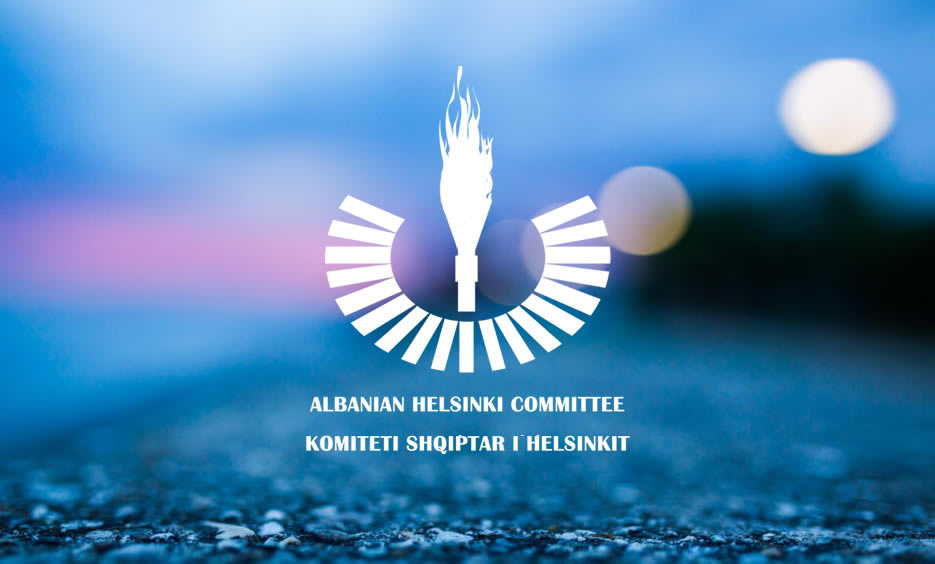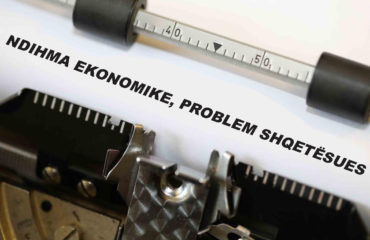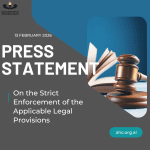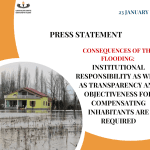Main findings of the monitoring of the preparatory process for the Local Elections of June 21, 2015
Abbreviations
AHC – Albanian Helsinki Committee
EC – Electoral Code
CEC – Central Election Commission
ZEAC – Zonal Election Administration Commissions
VC – Voting Center
INTRODUCTION
Respect for the right to vote, as an important part of fundamental human rights, was again the focus of AHC observation in the context of the June 21, 2015, elections. Raising citizens’ awareness to participate in voting and the smooth functioning of the election administration, in order to conduct free and fair elections, are the main objectives of our activity in this context. Our activities spread over Tiranë, Kamëz, Sauk, Elbasan, Librazhd, Kukës, Fushë-Krujë, Shkodër, Lezhë, Korçë, Pustec1, Pogradec, Fier, Lushnje, Berat, Vlorë, Himarë, Gjirokastër, Përmet, Tepelenë and some villages of Dropull.
Our observation to date has concentrated on those activities and taken measures that enable and facilitate the free and informed exercise of the right to vote by voters. The announcement of the preliminary voter lists and final voter lists; accessibility of voters to these lists; enabling the right to seek correction of voter lists, through administrative or judicial routes; notification of voters in their residences with regard to their involvement in the lists and te center where they should present themselves to vote; the conduct of election campaigns that re as informative as possible for voters; enabling the communication of voters and candidates, as well as getting to know them, are some of the issues where our attention was focused during this period.
Below are some of the main findings of our observations, which represent achievements but also violations of the guarantees that legislation in force envisions for the conduct of free and fair elections, and which directly or indirectly infringe upon the right to vote. With regard to these important issues in some cases, we have spoken previously through press statements.
1. Involvement and participation of voters in the electoral process and changes in the EC
• Increasing the gender quota to 50% for the lists of candidates for municipal council candidates and the sanctioning of the right of the CEC to reject the list for failure to meet this obligation represents an important step that will enable the increase of women’s participation in decision-making.
• Nevertheless, amendments to the EC were done late by the Assembly, without the proper transparency and involvement, especially of civil society representatives in this process. They could have contributed to preserving the standards that protect and guarantee voters’ interests. Amendments to the EC are of a technical character and did not enable the implementation of OSCE/ODIHR recommendations that had been issues in previous elections and that would raise the standards of elections.
• Although voters are the main actors of the voting process and their vote is the expression of direct democracy, it appears that the attention of the electoral administration and other public bodies that operate on the organization of elections is directed more toward the requests and interests of political parties, or electoral subjects that dominate the atmosphere, decision-making, and orientation of the progress of the electoral process.
2. Preliminary (lists with extracts of electoral components) and final voter lists:
• The preliminary lists, containing extracts of electoral components, in general, were posted regularly every month. However, in some cases, their posting was only done in the last two months or they were posted in a way that did not enable full voters’ access.2 Errors found by the administration or through voters’ complaints were corrected before the posting of final lists.
• Different voters contacted by us, especially those of the Roma community, ethnic Serb-Montenegrin, Greek and Macedonian minorities presented the concern that their notification in their places of residence, with regard to inclusion in the lists and the pertinent voting center, had not been carried out as prescribed by law. There were a few municipalities where this notification had been done regularly, such as in Lushnje, Berat, Korçë, etc. The Ministry of Interior did not allocate funds for this purpose according to law.
• First time voters lacked information regarding the lists of extracts of electoral components the significance, purpose and possibility to correct them according to law. As a result, this caused their lack of interest toward the electoral process and underestimation of participation in it.
3. Establishment and functioning of Zonal Election Administration Commissions
• ZEACs were established late3 due to late amendments to the EC.4 The creation of the conditions for the proper funciotining and of these election administration bodies and for ensuring the transparency of the activity of these bodies left to be desired. AHC encountered a lack of material/logistical deficiencies, inappropriate working premises,5 assignment of ZEACs in municipality buildings, in violation of article 93, item 2/b of the EC, such as in Përmet, Tepelenë, Korçë.
• Our inhabitants encountered a frequent changing of ZEAC members, which does not help their effective training and the smooth functioning of these bodies (ZEAC no. 01, no. 3, no. 04, no. 07 (Shkodër), ZEAC no. 09 (Kukës), ZEAC no. 69 and no. 70 (Korçë), ZEAC no. 63 (Berat), ZEAC no. 18 (Dibër), ZEAC no. 56 and no. 57 (Fier), ZEAC no. 81, no. 85 and no. 86 (Vlorë), etc. This practice was criticized also in the previous elections by OSCE/ODIHR but is still seeing no improvement.
• With rare exceptions, ZEACs had not posted their makeup, schedule of activity and agenda of planned meetings. This harmed transparency on the activity and decision- making of thse election administration bodies.
• ZEACs did not possess information and, as a result, had not helped voters obtain information regarding the characteristics and places of residence of candidates for municipal council members of their areas. This kept voters from having greater awareness about the candidates presented by electoral subjects and from forming an inner conviction about voting. The situation is more problematic if we take into consideration the fact that the candidates’ lists include also incriminated persons. Voters expressed concern to us in this regard as they do not wish to give their votes to these persons. For the vote to be free, it is not enough to not have interferences with its exercise. It is just as important that voters vote after having objective awareness.
4. Electoral campaign:
• The election campaign began a long time before the legal deadline (art. 77 EC). The CEC reacted on this issue, although late, but did not demonstrate consistency to punish, according to law, the electoral subjects that continued to conduct their campaign in violation of the law. Such stances encourage the atmosphere of unlawfulness during the electoral process and therefore should not occur again.
• The political atmosphere, public calm and safety have been generally quiet but filled with mutual accusations between candidates and their staffs. Maintaining calm and order will have a positive impact on the smooth conduct of the election campaign and the preparation of elections; it will also enable voters the necessary tranquility and environment for free and fair voting. Nevertheless, we deem it necessary to mention the Durrës event of May 2, 2015, whereby militants of opposing political forces interfered during the rally organized by the DP candidate
for mayor.
• Electoral campaigns are very politicized, in form and content. They have been conducted mainly by party leaders who have addressed mutual attacks on one another and have presented local governments as a derivate and dependent upon central political power, circumventing the principle of local autonomy. Candidates for mayors too have been extensively involved in the campaign, but candidates for members of municipal councils have not been adequately highlighted and introduced. As a result, representation in candidates’ lists of inhabitants of rural areas that will be merged with the municipalities created upon approval of the local government reform has not been made clear. The values and skills of these candidates have not been made adequately known. This shortcoming is also reflected in media programs and as a result voters, especially young ones, presented the concern that they may not objectively and freely form their own conviction about exercising their right to vote.
• In general, election campaigns have been oriented toward enabling candidates to express themselves, but little opportunity has been provided to voters present in campaign meetings to communicate with candidates or direct them questions regarding issues of concern to them.
5. Voter awareness and information
• During its observations, AHC found that there is a lack of awareness activities for citizens. Such activities are only conducted by a group of NPOs, funded mainly by the American Embassy, but they are not sufficient. The electoral administration and public structures should work more in this regard.
• The media has focused more on debates of a political character and have not helped as much as they should to raise the awareness and inform citizens about the voting process. However, AHC experts held awareness raising conversations with first time voters, voters from vulnerable communities, etc., and also conducted or participated in 10 television shows in the local and national broadcast media.
for mayor.
6. Other issues:
• We found that some VCs have been established in premises that are inappropriate for voters with movement impairments and that local government bodies and civil registry offices did not transfer the names of these voters to more appropriate VCs, before posting the final voter lists.
• CEC and the interested electoral subject have submitted to the Prosecutor General’s Office a referral, accompanied by technical audit reports, regarding the transfer of a high number of new inhabitants in the Durrës and Kavajë municipalities. A fast and objective investigation of this case would help clarify the truth and as a result make the electoral process in these cities credible, besides holding accountable those responsible, should legal violations be proven.
• Concerns have also been raised with regard to lack of transparency with regard to political party financing for the political campaigns they are conducting, especially funds donated by private individuals and businesses, alluding to favors pledged by candidates should they win. Although we have not found proof of this, we strongly raise the concern that this is an issue that should be carefully investigated both by bodies assigned by law for this purpose, but also by justce bodies.
These were some of the findings from the observations of AHC about the pre-election period. We hereby announce that the AHC will present its findings to the public one more time, before election day and then, we will make available the main findings in the final report of AHC on the June 21, 2015, elections.

The publication of this material was supported financially by the U.S. Embassy Democracy Commission Small Grants Program. The views, findings, conclusions and recommendations expressed in this report are those of authors and do not necessarily represent those of the U.S. Department of State.








